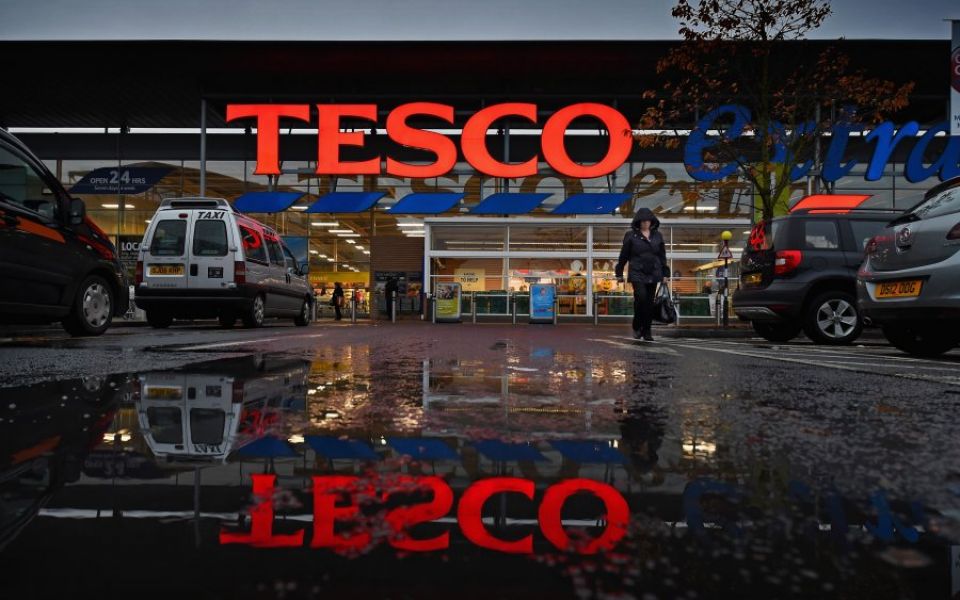
‘Personalised pricing’ could soon make it cheaper to buy your lunch at 3pm

These days, consumers have generally come to terms with the idea the price they are asked to pay for, say, a train ticket or hotel room can fluctuate – and sometimes quite markedly – depending on when they make the purchase.
It would presumably still come as a shock, however, if their local supermarket charged them a different price for a loaf of bread to that which the person ahead of them in the queue had just paid.
This idea of ‘dynamic pricing’ has variations that are known, perhaps more self-explanatorily, as ‘demand pricing’, ‘time-based pricing’ or, as practised by the likes of Uber, ‘surge pricing’.
And, according to a couple of recent articles in the national media, advances in technology mean fluctuating digital price tags could soon become a feature of our local supermarket – with varying consequences for our grocery bills.
Personalised pricing
In Why your bananas could soon cost more in the afternoon, for example, the BBC notes how Coca Cola sends videos and discount coupons to people’s smartphones as they shop in a particular supermarket chain.
The article adds: “Digital signs encourage shoppers to find the soft drinks aisle, where they are then targeted with personalised special offers and content based on their online browsing habits and spending profiles.”
Underlining the full implications of this idea, The Guardian’s fascinating Surge pricing comes to the supermarket points out “pricing policies are not only dependent on availability or stock, but also, increasingly, on the data that has been stored and kept about your shopping history”.
“If you are an impulse buyer, or a full-price shopper or a bargain hunter, online retailers are increasingly likely to see you coming,” it adds.
“Not only that – there is evidence to suggest that calculations about what you will be prepared to pay for a given product are made from knowledge of your postcode, who your friends are, what your credit rating looks like and any of the thousands of other data points you have left behind as cookie crumbs in your browsing history.”
The end of universal prices?
Until now, a shopper in Tesco, say, has always had a high degree of certainty that, at any given moment, they will be paying the same price for an item as any other Tesco customer, regardless of factors such as the particular store they are in or – with the exception of reductions on perishable goods in the late afternoon or just before their sell-by date – the time of day.
But could we now be about to see an end to this practice of ‘universal pricing’ in UK supermarkets?
On our Value Perspective blog, we are never inclined to predict the future – although we would observe that supermarket shoppers in this country have largely been resistant to the idea in the past and any attempts by chains to introduce such a scheme have tended to be swiftly abandoned.
Of course, one area where one form of dynamic pricing – that governed by the laws of supply and demand – has long held sway is the stockmarket.
It would therefore seem likely that, should the practice be adopted in UK supermarkets, here on The Value Perspective, we will instinctively be adjusting our shopping habits – by timing, location or whatever – to ensure we avoid the queues and track down the bargains.
- Simon Adler is an author on The Value Perspective, a blog about value investing. It is a long-term investing approach which focuses on exploiting swings in stock market sentiment, targeting companies which are valued at less than their true worth and waiting for a correction.
Important Information: The views and opinions contained herein may not necessarily represent views expressed or reflected in other Schroders communications, strategies or funds. The sectors and securities shown above are for illustrative purposes only and are not to be considered a recommendation to buy or sell. This material is intended to be for information purposes only and is not intended as promotional material in any respect. The material is not intended as an offer or solicitation for the purchase or sale of any financial instrument. The material is not intended to provide and should not be relied on for accounting, legal or tax advice, or investment recommendations. Reliance should not be placed on the views and information in this document when taking individual investment and/or strategic decisions. Past performance is not a guide to future performance and may not be repeated. The value of investments and the income from them may go down as well as up and investors may not get back the amounts originally invested. All investments involve risks including the risk of possible loss of principal. Information herein is believed to be reliable but Schroders does not warrant its completeness or accuracy. Reliance should not be placed on the views and information in this document when taking individual investment and/or strategic decisions. The opinions in this document include some forecasted views. We believe we are basing our expectations and beliefs on reasonable assumptions within the bounds of what we currently know. However, there is no guarantee than any forecasts or opinions will be realised. These views and opinions may change. Issued by Schroder Investment Management Limited, 31 Gresham Street, London EC2V 7QA. Registration No. 1893220 England. Authorised and regulated by the Financial Conduct Authority.